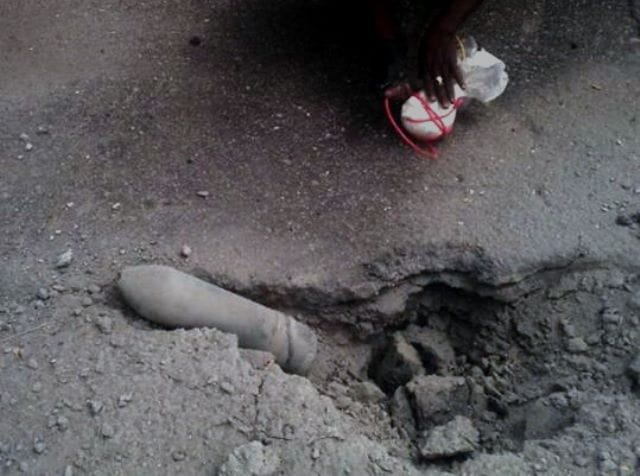🌿 Ruzu Non-Alcoholic Herbal Bitters
Ruzu Non-Alcoholic Herbal Bitters is a natural health supplement specially formulated to:
- ✅ Promote general wellness
- ✅ Detoxify the body
- ✅ Support the treatment of various ailments
Made from a powerful blend of 100% organic and medicinal herbs, Ruzu is completely alcohol-free, making it ideal for:
- 👪 All age groups
- 🌱 Health-conscious individuals
- 🌿 Anyone seeking non-alcoholic herbal remedies
Whether you're looking to boost your vitality, cleanse your system, or support healing the natural way, Ruzu Bitters offers a trusted herbal solution.
Explosive mistaken for scrap metal kills six in Borno
By Admin

NO less than six children were reportedly killed on Saturday, January 27, after an improvised explosive device (IED) exploded near a Qur’anic school in Gubio Local Government Area (LGA) of Borno state.
A counter-insurgency publication, Zagazola Makama, focused on the Lake Chad region, confirmed and said the incident occurred at about 2 p.m.
The publication said an undetonated IED was collected among scraps stored in a building by a metal scavenger.
“An improvised explosive device (IED) has detonated in Gubio town, Borno, resulting in the tragic deaths of six Quranic school pupils popularly known as Almajirai,” the publication said.
“The incident took place on Saturday, January 27, when a metal scavenger unknowingly collected and stored various metallic items in a building close to a Tsangaya school”
According to the Publication, the scavenger did not know that among the collected metal was an abandoned undetonated IED, which exploded at approximately 2 pm, claiming the lives of the children and causing severe bodily harm.
In 2022, the Borno police said about 55 scrap metal collectors were killed by insurgents within three weeks in the state.
In 2023, Babagana Zulum, governor of Borno, banned activities of metal scavenging in all LGAs of the state.
Read Also:Burkina Faso, Mali, Niger withdraw from ECOWAS over suspension
Zulum had said metal scavenging activities had caused the death of thousands of citizens in the state.
















